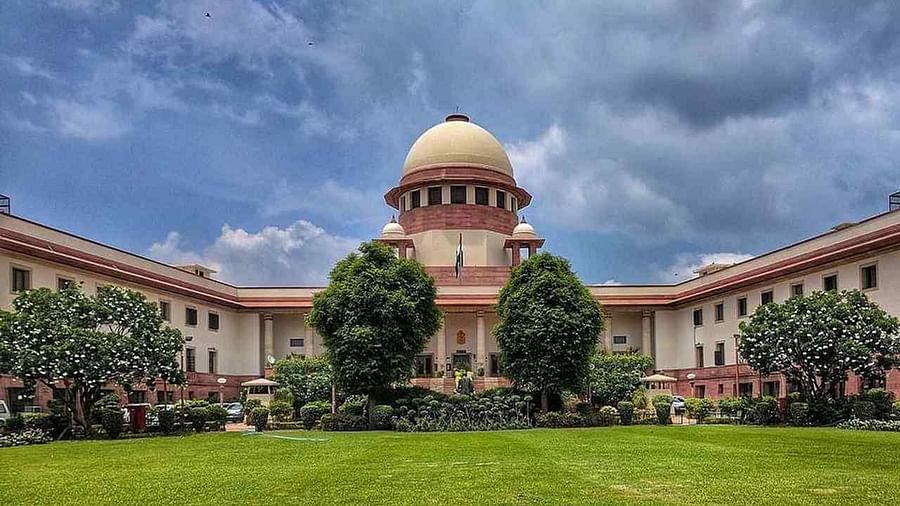The Supreme Court on Monday has upheld the interim stay imposed by the High Court on the Gujarat government’s law prohibiting marriage with the intention of religious conversion.
The Gujarat Assembly had passed the Gujarat Freedom of Religion (Amendment) Bill, 2021, in April to stop the “emerging trend in which women are lured to marriage for religious conversion”. The law provides for a punishment of three to 10 years in jail and a fine of up to Rs 5 lakh.
Last August, Gujarat High Court put a stay on several sections of the amended law against forced religious conversion through marriage. The Sections were 3, 4, 4A, 4B, 4C, 5, 6 and 6A of the Act.
Section 3 of the 2003 Act was amended to redefine “prohibition of forcible conversion” as “no person shall convert or attempt to convert, either directly or otherwise, any person from one religion to another by use of force or by allurement or by any fraudulent means or by marriage or by getting a person married or by aiding a person to get married nor shall any person abet such conversion”.
This was challenged before the Gujarat HC.
“Marriage (interfaith) per se” was not prohibited but it could not be “used as a tool or instrument for effecting forceful conversion”, stated the Gujarat government. The Bill enacted new provisions, including a revised definition of “prohibition of forcible conversion”.
In response to the submission by Advocate General Kamal Trivedi, the bench led by Gujarat Chief Justice Vikram Nath clarified that the law kept a “sword hanging” on interfaith couples and that it can’t be read (from the Act) that interfaith marriage is permissible.
Notably, Section 3 of the Act was amended to criminalise conversion by use of force or by allurement or by any fraudulent means or by marriage or by getting a person married or by aiding a person to get married.
Then the Gujarat government filed a petition in the Supreme Court, seeking a stay on Gujarat High Court’s order, implying that Gujarat Religious Freedom (Amendment) Act, 2021 will not apply to inter-religious marriages.
Now, Supreme Court issued a notice asking the Gujarat government to file a reply on the matter within six weeks. The Gujarat government responded that it would not be appropriate to file a reply in such a short time.











